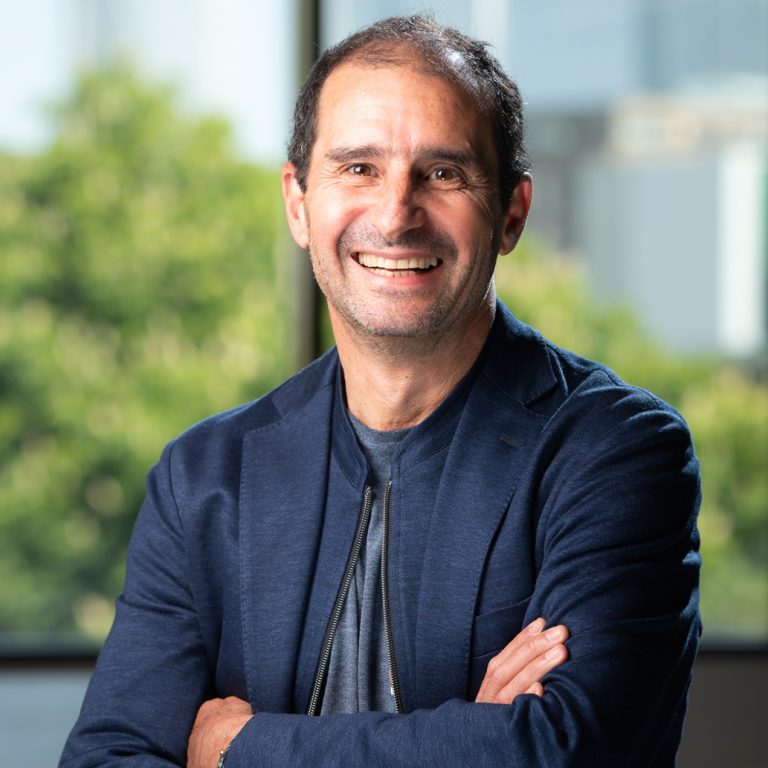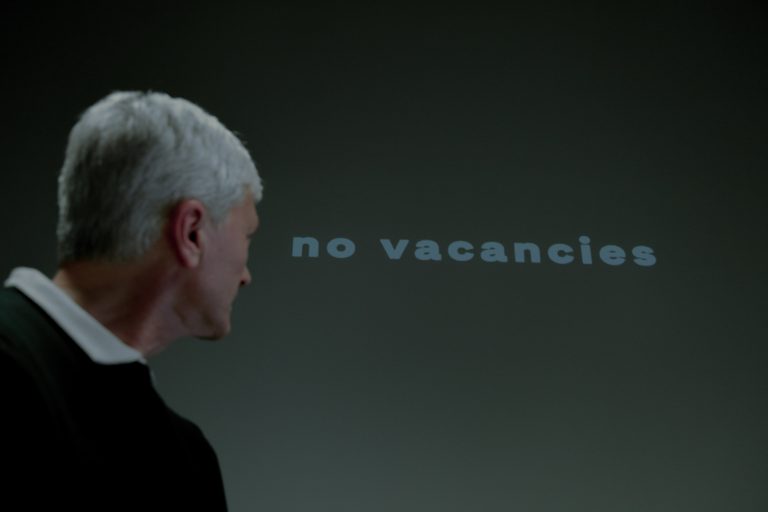Pierre, tell us about your early life and how you found a career path into HR.
Well, right from the start of my life, I was surrounded by sport. My father was a rugby professional and my mother was a physical education school teacher. I was always playing sport, but my main passion was rugby – following in my dad’s footsteps. That was until I picked up a tennis racquet, which soon became my focus. I started a course in physical education and, following that, business school and that incorporated an internship opportunity at Decathlon. Immediately I thought this was just great, a sport-orientated company, what could be better for someone like me? I really enjoyed the experience. And I think my enthusiasm caught my manager’s attention and I was offered an opportunity in the company. So, I decided to finish my year at business school and, in July ‘89, I started work at Decathlon in France as a department manager. I really immersed myself in this customer-facing role, and I was absorbing all I could about what makes a retail environment tick, and customer relations. I did that for five years as sales and department, and I decided that my future lay with Decathlon.
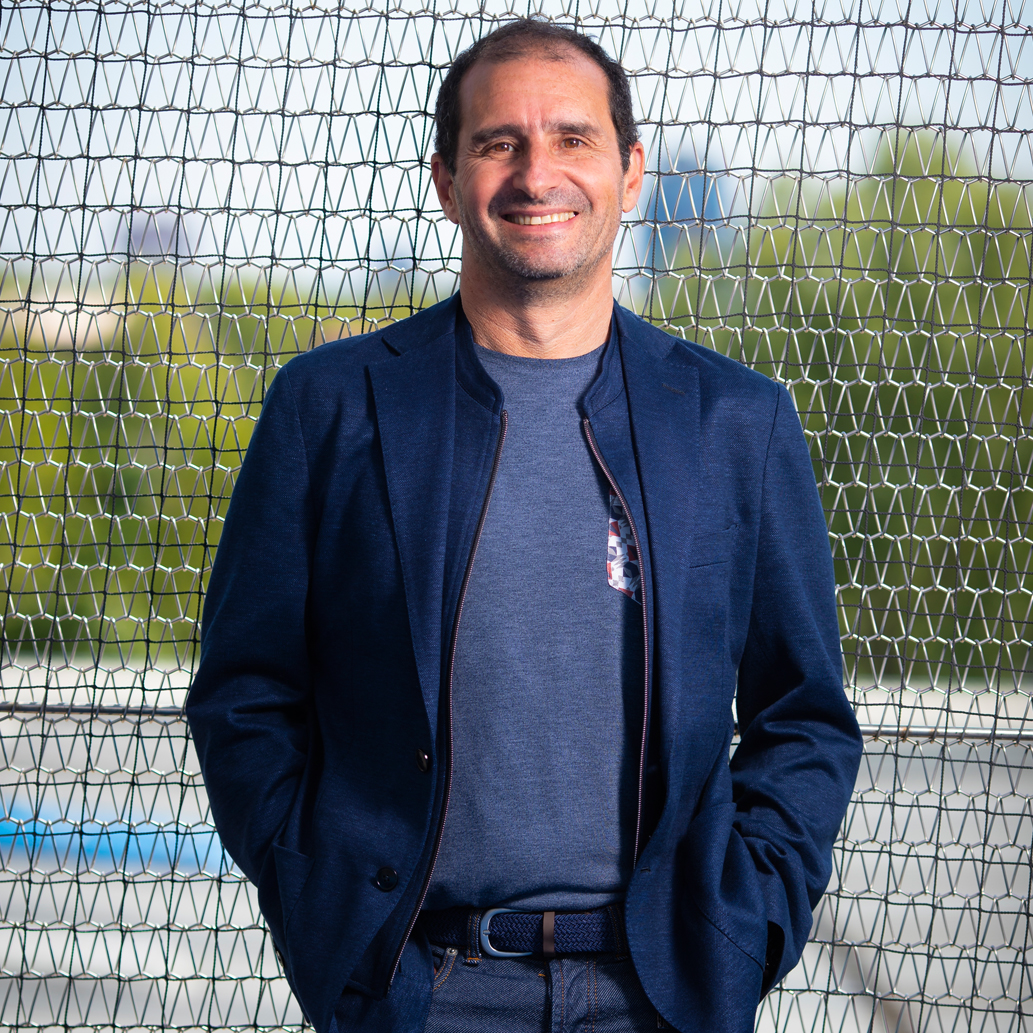
What are the origins of Decathlon and how has it changed over the 30 years that you’ve been involved?
Back then it was, of course, a lot smaller – around 60 stores in France – small by comparison to today, as we now have over 1,600 outlets globally. So totally focused on sporting enthusiasts and playing sports more accessible. As it developed, it was the only store of its kind and as the business expanded to become big stores, offering a wider variety of sporting goods, it was totally unique in Europe. There was a similar enterprise in the USA, and Decathlon’s founder Michel Leclerc, based on the great success and growth across France, naturally had the ambition to explore opportunities across Europe, Germany and Spain being the initial likely targets. This proved to be the catalyst for the business and today we’re in 56 countries, the first sporting goods retailer worldwide and still growing which, when you consider the retail environment and the huge changes in shopping culture, is a very rare corporate story.
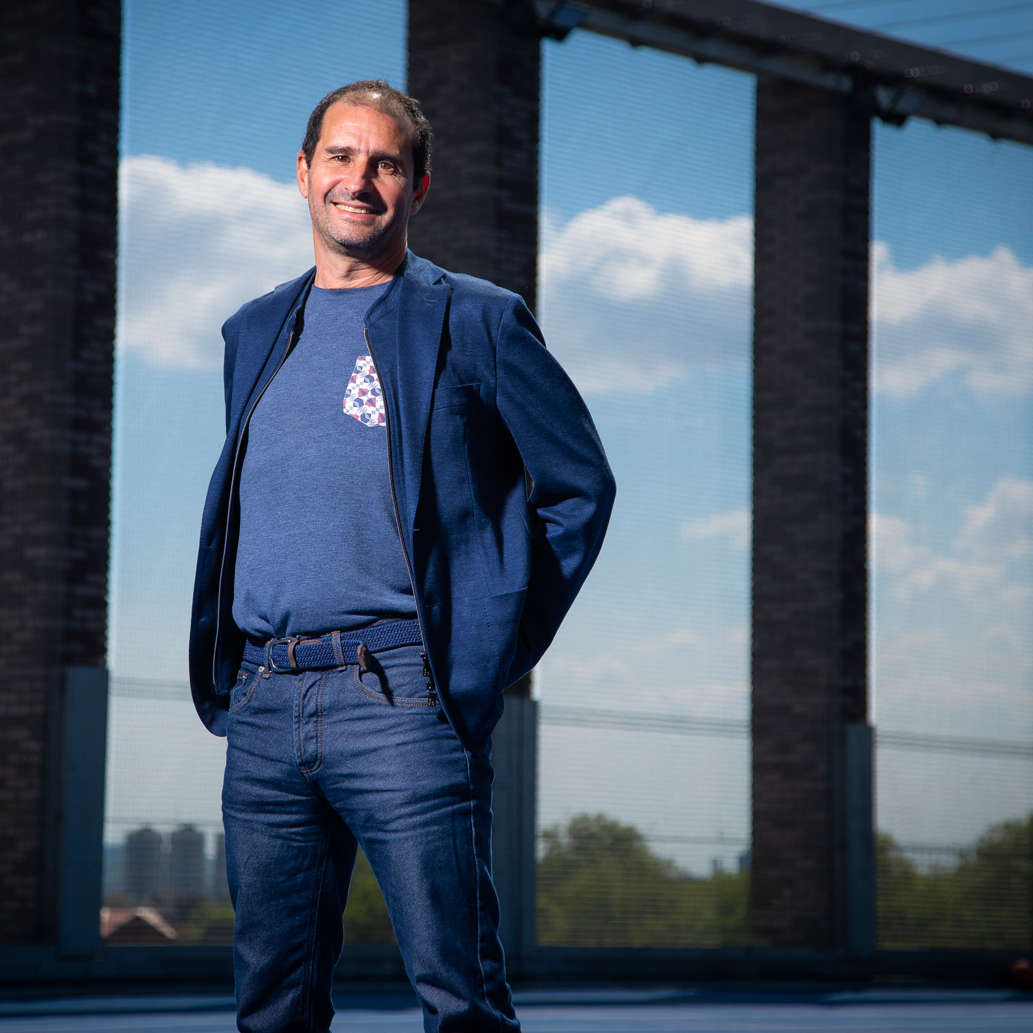
You were a store manager for quite a long time, so how did you begin to forge a more executive role in the business?
What I think sets Decathlon apart is its ambition and its willingness to take a risk on providing people that are really showing potential, with opportunities that really stretch them and, potentially, that they could fail at – not through lack of support and development – they may put everything into the role, but simply make a mistake. That confidence to fail element is quite new, but at Decathlon, it’s been prevalent ever since I joined 30 years ago.
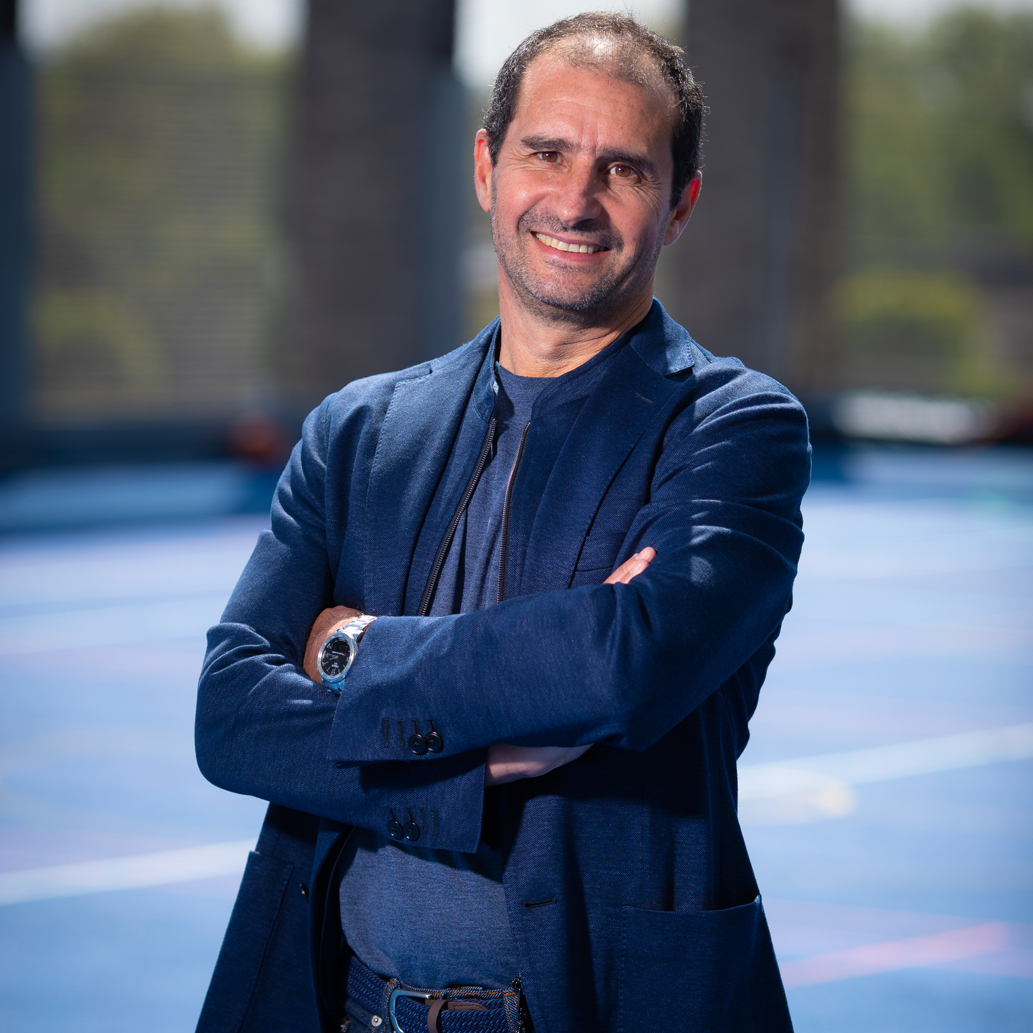
Tell me about your international assignment and the next chapter in your career story?
Decathlon was now in international growth mode and I was offered the opportunity to be an area manager to support the expansion in Italy. I met with the country manager and the role he had in mind for me was a manager role, to set up store, and recruit, train and develop staff to a point that I could leave the new store to run autonomously, enabling me to move onto the next store development and launch. I visited Italy with my young family with a view to moving there having had no knowledge of the country, and we all liked it and decided to take a chance. Decathlon was a totally new brand and concept in Italy, so it was really hard to recruit and retain. I decided that in the process of building the Decathlon brand to customers in Italy, it made total sense to build the company culture too, to really showcase to people passionate about sport, that Decathlon presented an opportunity to bring that passion and make a career.
So, that was my role for five years and then, after 15 years in the company, I was offered the opportunity to become development manager for Decathlon’s racquet sport brand Artengo. Tennis was always my big passion, right back to my very young days and so this for me was a very exciting opportunity. So, after 15 years in the company, any thoughts of exploring career opportunities elsewhere diminished. We relocated back to France, for what for me was a new role in a new discipline, marketing. What I had achieved in Italy with the employer brand had really caught people’s imagination, and so with the Artengo brand presented a new opportunity for me, an international market role, in charge of international affairs for racquet sports.
I had boundless energy and enthusiasm for this role and, in my first three years, I took a lot of, what with hindsight can only be described as, “risks”. Nevertheless, the racquet sport brand was really growing in popularity and the research and development in the new products was really paying off. Everything seemed to be going very well, I felt very confident, and I was promoted with a wider remit, and it was a very challenging role with some unknown territory, but still I kept taking risks and made a lot of changes. But now, I was having difficulties and I was struggling and I ended up constantly arguing with my boss, because I was convinced that my strategy was correct, and he disagreed. Things were not going well, and I was fired from the role. It was the first time I had failed in the company and it hit me hard and really dented my self-confidence. Nevertheless, I wanted to stay at Decathlon and thankfully, the company also wanted me to stay, and I was given the opportunity to try something new, which I gratefully accepted, as I was determined to build their trust back in me. I look back now and I realise this was an important lesson and, again, if people are taking up challenging new opportunities, the chances are that they will fail, and learn from it, as I did.
Nevertheless, this must have been a difficult time, after all the years you had been with the company.
No question this was a tough time, after years of success and progress, my ego was hurt. But I quickly came to terms with it and you have to take responsibility for your failures, learn from them and move on. Ultimately, you cannot argue against poor results – I tried to and paid the price. Plus, at the very least, it’s a really good anecdote to roll out to people in the company. Since then we have developed checks and measures so that people are better protected and supported, and still have the confidence to take risks, which has been fundamental to the success of the business.
Tell us how you made a comeback and put your career on the right footing again. I returned to customer services, but this time to develop a centralised department to service the whole of France. It was quite a new area and I pretty much started from zero. The rationale was that we were really focused on product, and although customer services at store level was really good, there was no centralised service area for our customers, so the remit was to really build the customer experience, including financial services, loyalty and gift cards. Plus, also build our intelligence on customers, as well as our product range and what the store represented. In short, we were aiming to build and support the whole culture of customer service and advice, making sure that staff were optimised in customer care. So we developed a cohesive on-boarding and training programme for people as soon as they were recruited and hit the shop floor, and this quick impact approach really shortened the time between people joining and interacting with customers. It also built strong responsibility for people to give good customer feedback about service and products, so we can constantly keep improving the experience on both counts. Needless to say, we were also creating our digital credentials, which we were determined would complement the customer experience in store, rather than supersede it and, today, as we continue to open new stores in new territories – which is a rare example in the struggling retail sector – we seem to have the right balance.
Tell us how your career path met up with HR?
In many respects, my whole career with Decathlon has been about transition. In my last three years in customer of services, I was developing new structures and strategies for the company’s resourcing framework and this was very much in HR territory. For example, in the context of managing business transformation in my department, we were readjusting the hierarchy – including my own position – to build a new way of team working, much flatter, with greater autonomy, building self-responsibility and meritocracy. I divided the department into ten new entities, each with its own projects and areas or responsibility and, what has evolved, is a new team spirit that is more proactive and creative. The teams are more aware of and part of the strategy, and it is building greater awareness and interest. It was a real experiment in HR – but quite quickly I realised that in removing the hierarchy, I had effectively negated my own position, and I really had not planned for that realisation. It was quite a change of mindset, and when I asked the teams what they thought, the feedback surrounding the changes in the operational and resourcing framework were all positive and the improvements were gaining the attention of the leadership, and what started off as an experiment became a really powerful and successful story across the business.
Yes, there were some difficulties to overcome, as there always is with a new set-up, but the big gains were there for all to see – connectivity, agility and quality decision-making – and there was motivation to adopt the strategy more widely in the company. Increasingly, I had the opportunity to present to other areas of the company and leaders about how we set up the new way of operating, how we had overcome the difficulties, and this was really gaining some traction – particularly, human resources leaders were showing a great deal of interest. That led to a discussion with Decathlon UK CEO Thibaut Peeters, which was experiencing some HR difficulties in the growth of stores there, which transpired to be mainly due to the hierarchical framework. So, based on what I had achieved in customer services, I was then surprised by an email, asking if I would be interested in taking on the HR role for the UK expansion programme. This looked like the right place and right time for a potential opportunity for myself – especially as I had just removed myself from the hierarchical frame in customer service. I discussed this with my wife and family, and they agreed. So aged 55, my next challenge would take me to the UK. We decided to adopt the same strategy to the UK expansion programme, again to improve links and give greater responsibility to people in the field. But, as your readers know only too well, there is no one-size-fits-all, and there were plenty of obstacles and challenges. That was two years ago and this, it transpires, has been my biggest challenge, in terms of scale and complexity, and a significant step up for me in a strategic role.
How did you adapt your approach to this next challenge?
Once again, although a lot of people would have sensibly gone for the tried-and tested, classic HR approach, I wanted to take some risks and experiment. So, from the beginning, I wanted to avoid classic HR and I really thought outside the box on how to approach this role and the plan ahead. We worked on a new way to on-board and introduced greater self-responsibility, a culture that supported people to develop themselves, which certainly fits right in with how the younger demographic likes to operate. Along with transformation of management, this has enabled people and stores to be up and running much more quickly than before, which is saving time, money and resources, as we progress from one new store project to the next. Crucial to this culture is bringing people in and developing them, so that they feel supported to an optimum degree, in order that they have self-confidence and have autonomy of thought and actions, which builds engagement and the will to succeed.
That is a leap of faith that many businesses wouldn’t be willing to take.
Well, the recipe for stagnation is doing the things the way you’ve always done them with the same personnel. Our perspective at Decathlon is the opposite of that – we believe in new people and we know they are the future of the business. With that firmly in mind, I see my role as one that flattens the playing field and opens the doors to opportunity. The notion in retail is that people are transitory, so why spend money on career development? Well, my view is the opposite of that – of course it helps that we’re selling exciting sports and leisure, that fuels its own passion, but people are not stupid – they know if their employer cares about them or not. You have to adapt to the pace of change with courage and conviction, not fear and, as I’ve said before, self-confidence is key to overcoming future challenges.
What is the next stage in the plans and how are you positioning HR to meet the challenges ahead and the ambitions and expectations of the business?
In terms of the business plans, the focus goes back to customer services and particularly to create a seamless experience for customers, combining the attributes of the physical and digital stores. In short, the perfect journey for customers to have the best advice and products, competitively-priced and available in store or delivered quickly. In terms of the products, we must continue to innovate, expand our range horizons and have enthusiasts in the business, constantly feeding back to central HQ what is happening in the many different areas we support. We are also actively building customer and employee loyalty and the big challenge is to improve our capability in the recruitment and retention of people that are passionate for sport and want to impart their experience and knowledge to customers. It is not easy, but it happens to be the most crucial element of our success. And, despite the fact that the world is becoming more digital and reliant on technology, ultimately it is the quality of people that is pivotal to that seamless customer journey and the success of any business.
Increasingly, too, we are working smart; working with data to inform on our customer needs and expectations and that is an exciting prospect. With that central in our minds, in the past, we have recruited for stores, for people who are passionate about sports, and turned them into brand and product advocates, now of course with the digital element being such a crucial element of the business, we are recruiting more people for technical and digital capability and, in the current talent shortage, the big task is to have Decathlon on that radar. In terms of HR challenges, of course the short-term tenure culture brings its own problems, but we are optimising the advantages of having exciting products to excite and attract people. One thing is for sure, we cannot just stand by and hope that is all we need to do. We must provide the career opportunities, train and develop people well and maintain that interest level.
